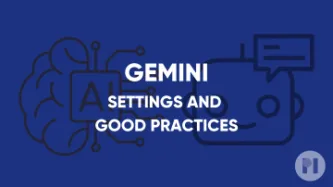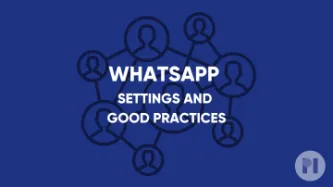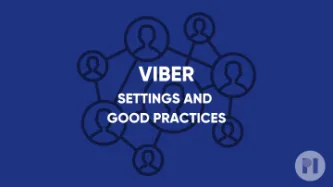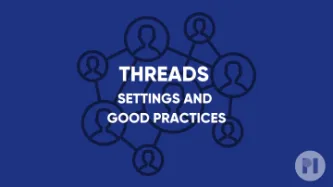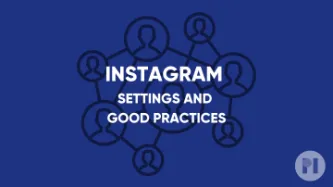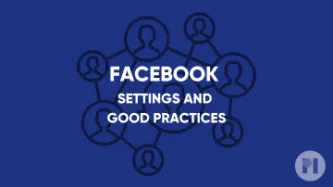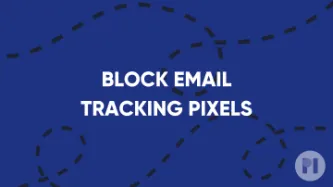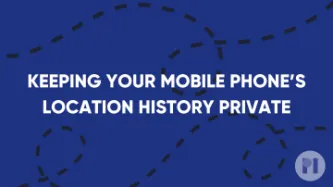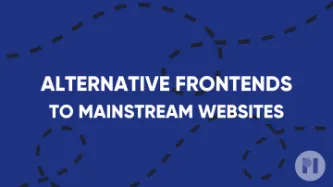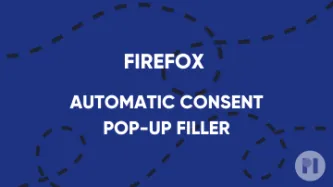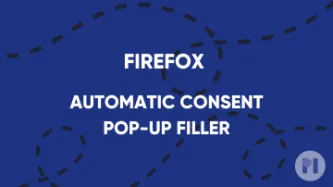Search
Content type: Guide step
Google’s Gemini and other AI chatbots are used by people in a variety of ways, including to conduct research, create content and analyses, deliver projects, and engage in conversations. We are concerned these AI tools can pose privacy and security risks when offered by tech firms, as they give these companies greater access to your data and access to our personal and professional lives.This guide includes steps to limit the risks of using this tool such as:Enabling Two-Factor…
Content type: Guide step
TikTok can be an important tool for individuals to access information and spread messages and ideas around the globe. For these reasons, it’s not possible for some people to simply stop using it. However, we continue to be very concerned about the company’s conduct.This guide includes:Two-factor authenticationMaking your account privatePreventing TikTok from suggesting your accountLimit your content visibilityBlock userReviewing third party apps with access to your dataMinimising targeted ads…
Content type: Guide step
Whatsapp (owned by META) is one of the most popular end-to-end encrypted messaging service. If you use it on your day-to-day it's worth reviewing some of your current settings and how you are making use of the platform.
This guide includes:
Chat backup settings
Visibility settings
App permissions
Managing desktop sessions
App security and two-factor authentication
Good Practices
Chat backup settings
This is one of most important settings to consider in WhatsApp. Because WhatsApp is end to end…
Content type: Guide step
If you use Viber on your day-to-day it's worth reviewing some of your current settings and how you are making use of the platform.
This guide includes:
Chat backup settings
Visibility settings
App permissions
Managing sessions
Good Practices
Deactivating your account
Chat backup settings
This is a key setting to look into. Viber states that is is end to end encrypted, which means that messages are only accessible by both the sender and the receiver, not being stored anywhere along the way.…
Content type: Guide step
Threads (part of Meta) can be an important tool for individuals to spread messages and ideas around the globe. For these reasons, it’s not possible for some people to simply stop using Facebook. However, we continue to be very concerned about the company’s conduct.
This guide includes:
Two-factor authentication
Making account private
Blocking user
Minimising targeted ads on Threads
Good Practices
Two-factor authentication
Two-Factor authentication provides an extra security step in order to…
Content type: Guide step
Instagram (part of Meta) can be an important tool for individuals to spread messages and ideas around the globe. For these reasons, it’s not possible for some people to simply stop using Instagram. However, we continue to be very concerned about the company’s conduct.
This guide includes:
Two-factor authentication
Making your account private
Block user
Reviewing third party apps with access to your data
Minimising targeted ads on Instagram
Good practices
Two-factor authentication
Two-Factor…
Content type: Guide step
Facebook (part of Meta) can be an important tool for individuals to spread messages and ideas around the globe. For these reasons, it’s not possible for some people to simply stop using Facebook. However, we continue to be very concerned about the company’s conduct.
This guide includes:
Profile settings
Post settings
Reviewing third party apps with access to your data
Minimising targeted ads on Facebook
Good practices
Profile Settings
In this section we take a look at profile settings, namely…
Content type: Guide step
Tracking pixels are a common online tracking technique used in email messages. They consist in embedding a unique, disguised or invisible, image in an email message to gather data about your interactions with it.
When you open a message containing a tracking pixel, your email client makes a request to load the image so that it can display it to you: in practice, this request acts as a notification to the server. Since only you are served this exact pixel, when your email client requests it to…
Content type: Guide step
In the current digital landscape, passwords are the predominant method for user authentication across most platforms. From a privacy perspective, passwords present a advantage over some other methods like biometrics, as they do not disclose any additional or unique data about you – apart from the selected username
Given the widespread adoption of passwords, manually managing multiple, unique passwords for each online account becomes more difficult. Having unique random passwords for each…
Content type: Guide step
In your day-to-day life, your smartphone silently captures and stores a digital footprint of your whereabouts by keeping a location history: this history is then used to enhance your mobile experience, such as by aiding in navigation and customizing app experiences according to your location habits.
Yet, it's essential to recognize the potential risks tied to this seemingly innocuous practice. Understanding how your location data is handled becomes vital, as it can impact your privacy in ways…
Content type: Guide step
Many mainstream Internet platforms, such as YouTube and X, often collect extensive user data, track online activities, and employ algorithms to create content recommendations based on individual preferences. For a privacy-conscious user, this is nothing short of a nightmare. Making use of alternative front-ends allows you to access the content you want, while minimising the data collected about you. Essentially, this corresponds to using a different website to access the same content. By using…
Content type: Guide step
The practice of buying and selling email addresses is a common one among digital data brokers. Say you register at an online shop to buy an item from a brand. The shop can then sell your email address to that same brand, so they can advertise to you directly in your email inbox. This is a form of targeted advertising, and we have written about its privacy implications to you as a digital citizen. Online marketing is not the sole reason you should consider concealing your personal email address…
Content type: Guide step
Depending on where in the world you are visiting from, websites may seek consent as one way to justify their collection of data about you. This has become general practice across the web, and the typical way to ask for user consent is via banners that pop up first thing when the webpage loads. Often these banners will make use of design elements and user interfaces aiming to mislead or influence you in giving away consent to collect and process your data - these are called Dark Patterns and are…
Content type: Guide step
Depending on where in the world you are visiting from, websites may seek consent as one way to justify their collection of data about you. This has become general practice across the web, and the typical way to ask for user consent is via banners that pop up first thing when the webpage loads. Often these banners will make use of design elements and user interfaces aiming to mislead or influence you in giving away consent to collect and process your data - these are called Dark Patterns and are…
